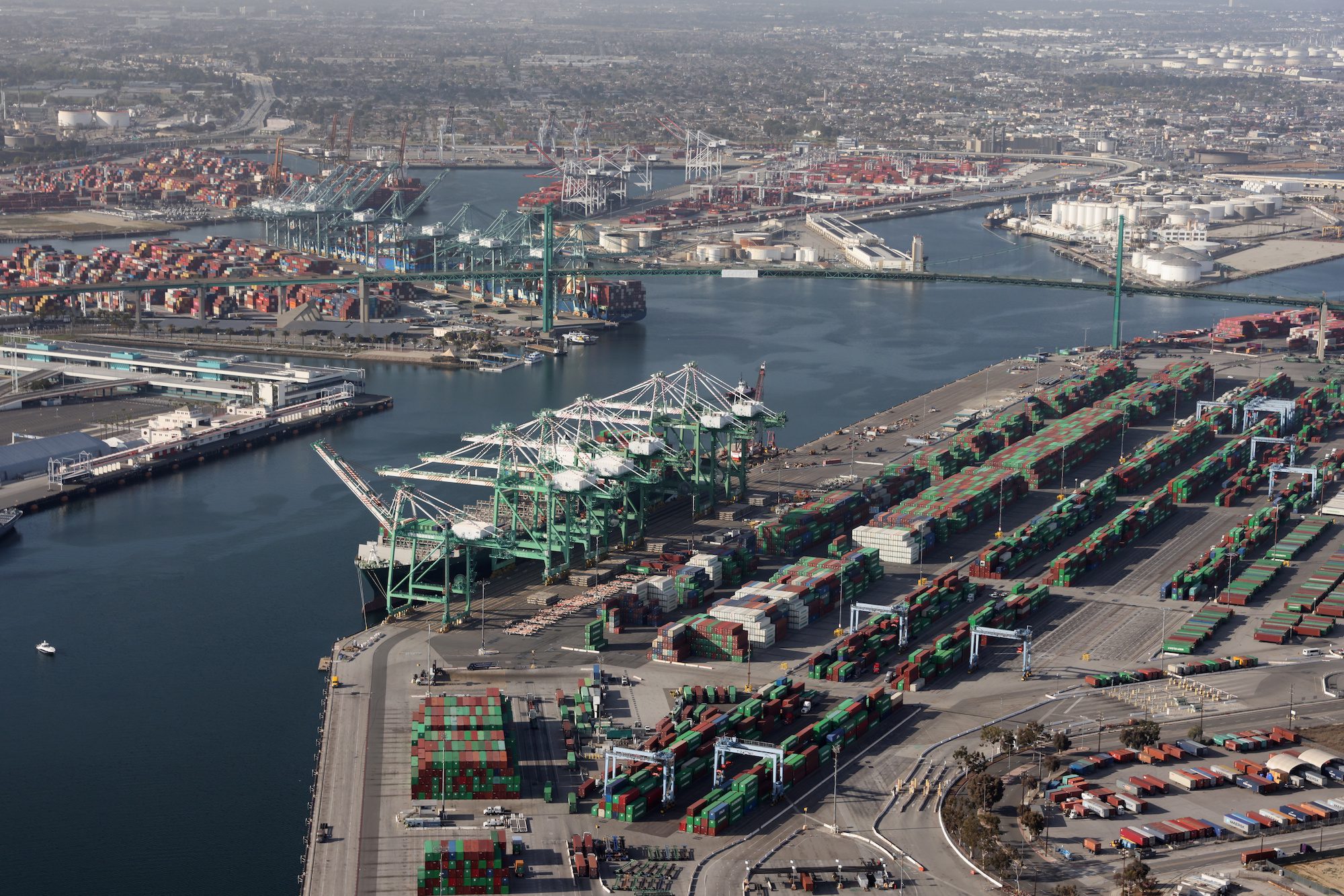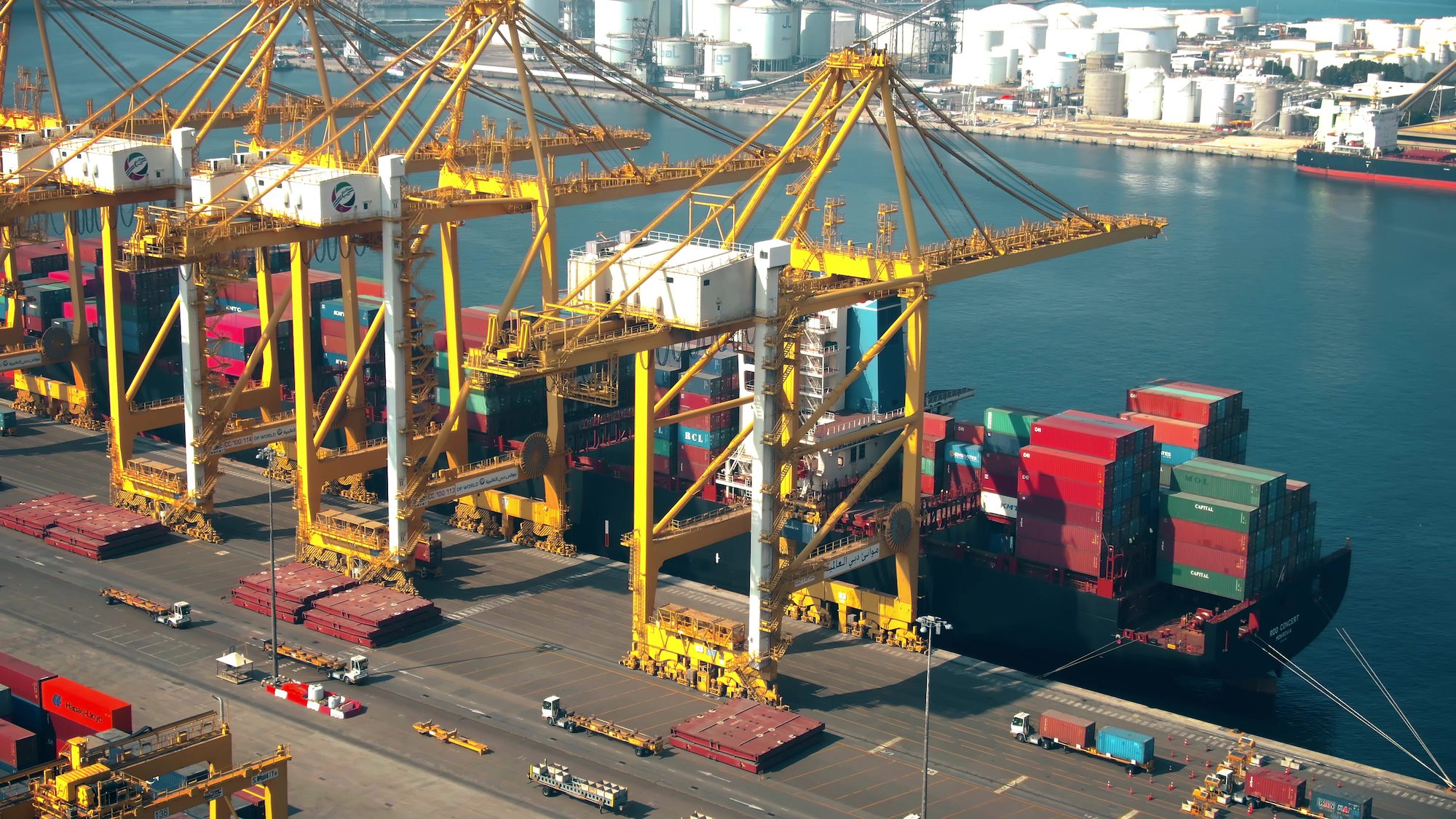The Ports of Los Angeles and Long Beach have announced a plan to begin charging a daily fee to ocean carriers for import containers that linger in marine terminals.
The new charges are part of an effort by the ports, developed in coordination with the Biden Administration, to improve cargo movement amid congestion and record volumes since the second half of last year.
Under the new policy, the ports will charge ocean carriers, starting at $100 per container, for containers that fall into one of two categories; containers scheduled to move by truck and those moving by rail.
The World Shipping Council, which represents international ocean liners, said they were still looking into the charges, but the information released so far does not seem to incentivize cargo owners to pick up their cargo from the ports.
In the case of containers scheduled to move by truck, ocean carriers will be charged for every container “dwelling” nine days or more, while for containers moving by rail, carriers will be charged if the container has dwelled for three days or more. Dwell times typically refer to the period between when the container is unloaded from a ship and the time when it is picked up
The charges will begin November 1, at which point carriers with cargo falling in those categories will be charged $100 per container, increasing by $100 increments each day beyond the allotted times, the ports said in a statement announcing the new measures.
“We must expedite the movement of cargo through the ports to work down the number of ships at anchor,” said Port of Los Angeles Executive Director Gene Seroka. “Approximately 40% of the containers on our terminals today fall into the two categories. If we can clear this idling cargo, we’ll have much more space on our terminals to accept empties, handle exports, and improve fluidity for the wide range of cargo owners who utilize our ports.”
“With the escalating backlog of ships off the coast, we must take immediate action to prompt the rapid removal of containers from our marine terminals,” said Port of Long Beach Executive Director Mario Cordero. “The terminals are running out of space, and this will make room for the containers sitting on those ships at anchor.”
Before the pandemic-induced import surge began in mid-2020, containers for local delivery sat on container terminals under four days, on average, while containers destined for trains dwelled less than two days. But those numbers have increased significantly over the last year, making it difficult to clear cargo off the terminals and bring in ships at anchor, contributing to the backup. As of today, the ports of Los Angeles and Long Beach had 102 containerships in port, including 73 at anchor or in hold areas and 29 at berth.
Fees collected from dwelling cargo is expected to be re-invested by the two ports for programs designed to enhance efficiency, accelerate cargo velocity, and address congestion impacts throughout the San Pedro Bay, the Port of Los Angeles and Port of Long Beach said.
The policy was developed in coordination with the Biden-Harris Supply Chain Disruptions Task Force, U.S. Department of Transportation and multiple supply chain stakeholders.
“I support the actions taken by the ports of Los Angeles and Long Beach today to charge ocean carriers for lingering containers on marine terminals. These actions aim to expedite the movement of goods and reduce congestion in our ports,” said John D. Porcari, Port Envoy to the Biden-Harris Supply Chain Disruptions Task Force. “As our economy continues to grow, increased demand and disruptions caused by the pandemic are putting our supply chains to the test. While we’ve seen new records set in terms of throughput this year at West Coast ports, we need more players throughout the supply chain to keep stepping up. The federal government will continue to bring together private companies and stakeholders from across the supply chain and serve as an honest broker helping to surface solutions like this to address supply chain disruptions.”
The Port of Long Beach has also moved to relax stack height limit restrictions, allowing stacks to be 4 containers high (as opposed to 2) when stored.
The World Shipping Council, a lobbying group for international liner shipping, released the following statement to gCaptain after seemingly learning of the charges through the ports’ press release:
The supply chain is complex and interconnected, and we welcome initiatives that will enhance the flow of containers through ports and the supply chain as whole. At this stage, the press release from the Ports of Los Angeles and Long Beach announcing demurrage fees on ocean carriers raises more questions than it answers.
We will need to see what any official action includes in the end, but the information to date does not indicate an approach that can be expected to incentivize cargo owners to pick up their cargo from the ports.
As described the fee is on the ocean carrier, but the control over when the cargo is to be picked up sits with the cargo recipient. Having the ocean carrier pay more does nothing to encourage the cargo interest to pick up the cargo; therefore, the incentive does not reach the party that needs to come to the port to remove the long-dwelling cargo.
We look forward to further dialogue to continue to investigate ways of alleviating the pressure on supply chains.
Sign up for our newsletter

 Join The Club
Join The Club











